17 Goals: How Austrian social enterprises successfully integrate people into society
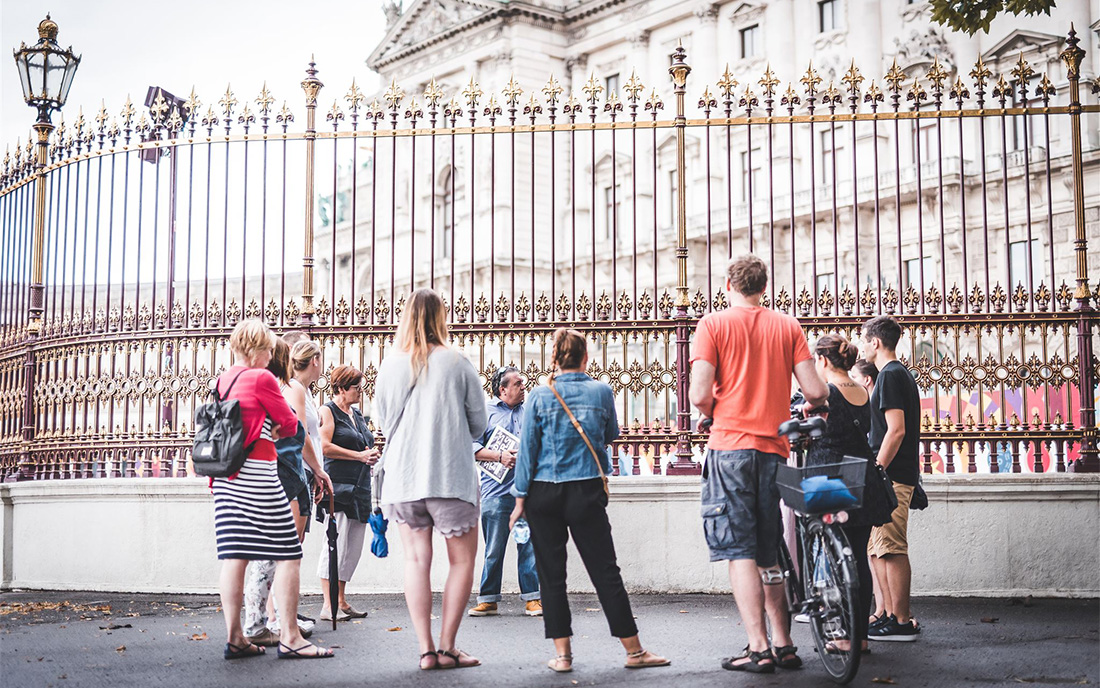
With their work, these 7 social enterprises from Austria help to break down the prejudices that still exist far too often against certain groups of people, such as the homeless and refugees, and thus help to reduce social inequality.
There are still many prejudices and stigmas in Austria against groups of people such as refugees or homeless people. This can lead to many denied opportunities and, instead of standing in the middle of life, they sometimes even lead a life on the edge of society. According to UNHCR estimates, there were around 93,000 people with a refugee background living in Austria alone in 2017. In addition, there are more than 22,000 people who were affected by homelessness in 2018. Unofficially, one suspects a higher number of unreported cases, since some of them – i.e. those who have no own home but are accommodated by friends and family for a certain period of time and therefore not entirely without shelter – conceal their homelessness out of shame. All of them have it not always easy and are often exposed to many prejudices in their everyday lives. But behind the numbers, there are always individual faces, stories, and personal fates that should be taken into account. Anything else, after all, would be wasted potential. If we listen to them and openly engage with their point of view, many may be surprised at the new perspective that opens up. These 7 social enterprises from Austria have long recognized this potential and are committed to fighting social injustice through their work every day. In doing so, they are actively helping to achieve SDG #10 – Reduce Inequalities. In addition, their commitment also has a positive impact on other SDGs such as SDG #8 – Decent Work and Economic Growth to SDG #16 – Peace, Tolerance, and Strong Institutions.

Shades Tours
During the city tours of “Shades Tours,” the participants get to know the cities of Vienna and Graz from a different perspective. The social enterprise specializes in tours on socially polarizing topics. According to the motto “Discover the shades of Austria”, moving city tours are organized on the topics of poverty & homelessness, escape & integration, and addiction & drugs.
The special feature: The tours are led by people who are or were affected themselves. During the city tours, which last about two hours, not only do the guides themselves give personal insights into their own lives but the participants are also given the opportunity to ask their questions. The tours are conducted all year round and are aimed at individuals, groups, school classes, and companies.
There are now 17 tour guides who have given around 30,000 people a very intimate insight into their city since the company was founded three years ago. In addition to the city tours, the company also offers a variety of corporate activities. Whether it’s a joint cooking assignment at a social institution, a company excursion, or an afternoon of baking with (formerly) homeless people, the activities aim to strengthen team cohesion and the socio-political skills of the participants. With the tours and activities that the social enterprise offers, the founders want to help break down any prejudices, create greater awareness and understanding for the situation of those affected, and, last but not least, make a contribution to reintegrating people back into society.
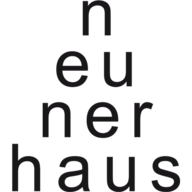
Neunerhaus
The “Neunerhaus” is a dynamic social organization based in Vienna, which aims to enable homeless people and people at risk of poverty to lead a self-determined life with dignity. Since its founding in 1999, the organization has been passionately committed to ending homelessness in Vienna and bringing people back from the margins to the center of society. It achieves this by offering a well-positioned range of affordable housing, medical care, and low-threshold counseling services. The counseling is provided in a café that is more than just a cozy meeting place. In addition to the anonymous and free counseling services, the café also serves healthy food made primarily from organic ingredients. True to the motto “Those who can give a little more”, everyone can eat their lunch on a donation basis. In this way, a valuable meeting place has been created between people who might not otherwise meet in this way, and which helps to break down interpersonal barriers.

For many years, the neunerhaus health center in Vienna has been a contact point
for people affected by poverty and without health insurance.
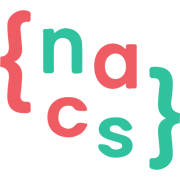
New Austrian Coding School
In a digital world like today, it is becoming increasingly important to acquire certain technical skills. No wonder that coding schools are booming and overrun all over the world! This potential has now been recognized and unfortunately the courses in these “boot camps” are often very expensive. The “New Austrian Coding School” (NACS) has a completely different approach. They want to make programming possible for everyone and teach valuable skills and knowledge in programming and software development in their nine-month, free training program. Their offer is aimed at people who live in or around Vienna, are currently unemployed, and would like to work as developers in the near future.
The idea was born in 2016 when the social enterprise launched “Refugees{Code}”. The focus here was primarily on refugees, who were to be given better opportunities in the Austrian labor market through programming and coding training. The result was overwhelming: With a success rate of over 90 percent in job placements, it became clear to the founders that they had to expand their impact. So in 2018, “Refugees{Code}” rebranded itself as NACS and expanded its target audience. Since then, NACS has been training unemployed people to become capable developers, who in turn have well-paid jobs waiting for them. In this way, the Viennese social enterprise solves two problems at once: on the one hand, it helps people back into the job market, and on the other, it provides companies with skilled workers, who are often desperately sought in the IT sector. The ambitious goal of the Viennese social enterprise is to become the leading company in Austria for the placement of software engineers.

More Than One Perspective
The Viennese social enterprise “More Than One Perspective” (MTOP) follows a similar approach. They bring well-educated people with a refugee background and migration experience together with suitable companies in Austria. In this way, the startup aims to demonstrate the diverse possibilities of integration within the framework of a “win-win situation” and create perspectives for a working world that is equal in opportunity and diverse with a focus on humanity. Founded in 2016, the social business has since been placing jobs with highly qualified refugees with a success rate of 70 percent. This high rate is made possible by the six-month MTOP Associate Program, in which the participants took part in various workshops, training, coaching and mentoring offers that optimally prepared them for entering the Austrian labor market. In the process, the participants can also exchange ideas with many companies, build up a comprehensive professional network and ultimately find exactly the job that suits them and their skills.

Magdas Hotel
“Magdas Hotel” knows that it is not easy for refugees on the Austrian labor market. The reasons for this are manifold: In addition to possible resentment towards the refugees, possible language barriers, or the fact that obtaining a positive residence permit, with which one can take up work in the first place, is very time-consuming, can lead to the fact that integration on the labor market is more difficult than assumed. Magdas wants to combat this with its unique concept: the social business hotel employs refugees to look after the guests – this not only helps with integration but also creates a very special atmosphere. In total, people from 16 nations work here, who together speak more than 20 languages. Instead of maximizing profit, the operators want to focus on humanity and openness and use the Magdas Hotel to create places of encounter and exchange, which in turn reduce prejudice and any resentment.
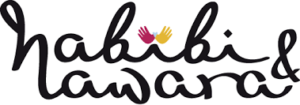
Habibi & Hawara
“Habibi & Hawara” was Vienna’s first restaurant to be run exclusively by refugees – much like Magdas Hotel. Opened in 2016, the social restaurant has since been serving tasty Austrian-Oriental fusion cuisine, which is highly popular among the Viennese. There are now five locations throughout the city where people with a refugee and migration background are trained and work. Habibi & Hawara also equips its employees with the necessary skills to set up their own restaurants as a social franchise. With a successfully proven concept and a strong brand, the company passes on an excellent, efficient, and sustainable food and design concept to the franchisees, who can then manage it themselves. At all locations, you can look forward to oriental hospitality spiced with Viennese charm and local products refined with ingredients from all areas of the Middle East. The restaurants use only organic and regional ingredients as well as reusable tableware and take care to avoid waste as much as possible.

Open Coach
Whether it’s a crisis in the family or partnership, at work or in one’s finances, health issues, or topics concerning one’s own personal development: Every one of us faces challenges at some point in our lives. Especially for people who are already struggling with difficult life situations, it is therefore important that they receive appropriate support. Following the approach “Coaching for All”, the Viennese social enterprise “Open Coach” offers psychological counseling and coaching for financially disadvantaged people. For as little as nine euros an hour, those affected can receive professional advice. Over the platform, one can book immediately available dates, which offer the honorary coaches also via video and telephone. The first conversation is free of charge. On the platform coaches for each life situation are to be found, which help to discover new and fresh possibilities and perspectives.
The 17 global Sustainable Development Goals (SDGs) are a roadmap for the future adopted by the global community in 2015. They are aimed at everyone: governments worldwide, but also civil society, the private sector and academia.
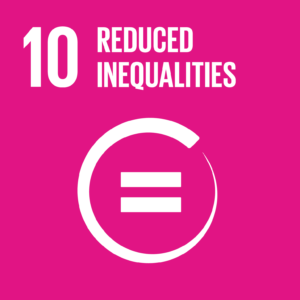
Goal 10 – Reduced Inequalities within and among countries
In its 2030 Agenda, the international community has enshrined the following sub-targets for SDG #10 – “Reduced Inequalities”:
- Income growth for the poorest 40% should each be above the national average by 2030
- All people should have equal opportunities – regardless of age, gender, sexual orientation, disability, ethnicity, religion, origin or social and economic status
- Eliminate discriminatory laws and policies
- Reduce inequalities more effectively
- Give developing countries more of a voice
- Orderly, safe, responsible, and regular migration and mobility



